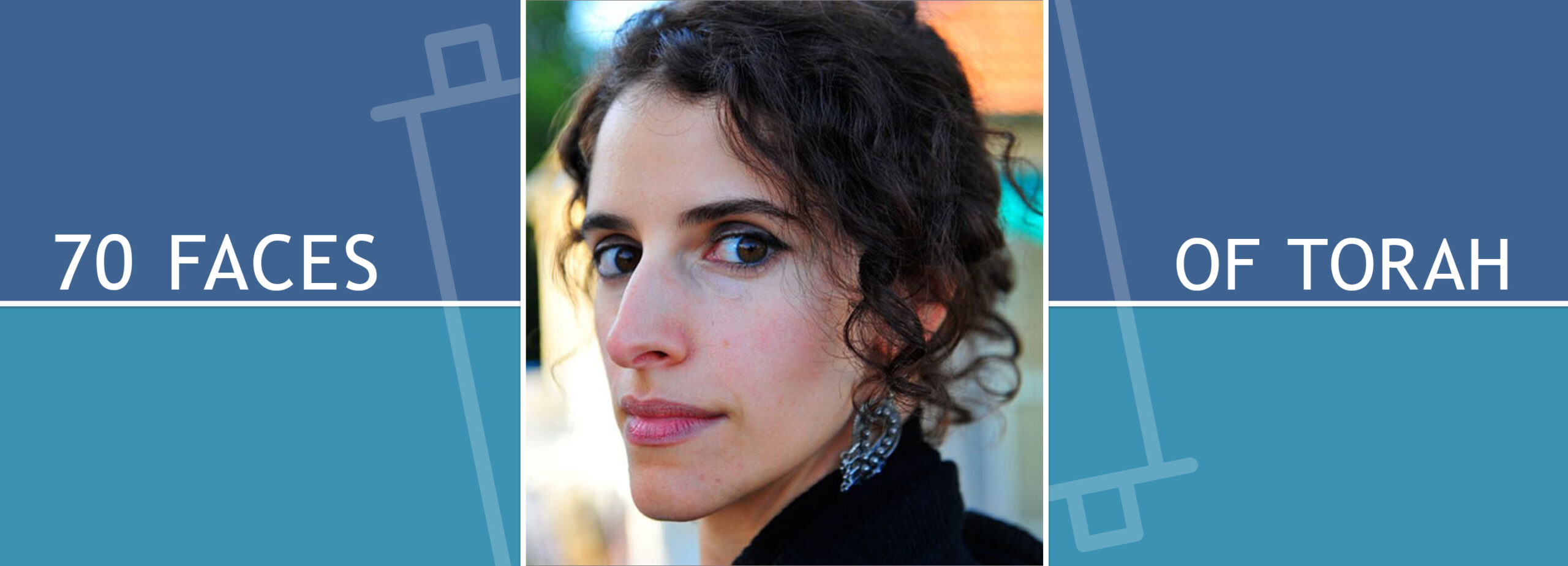Deuteronomy Return Again (Parashat Shoftim, Deuteronomy 16:18-21:9)

Three years ago, I returned from 2 years in Jerusalem, and stayed with my parents in DC, while preparing to lead High Holiday services at 6th & I. I think it was after I stepped off the plane, but before I placed my suitcase on the floor of my parents’ home, my mom handed me an ultimatum: you. You know the boxes in the attic. The ones where chaos lurks beneath the sloppily taped lids? The ones taking up space for years? You will not leave my home until you have gone through every last one. Some of you are thinking: ‘that sounds so cathartic,’ but for others, like me: Terror.
To dive into the geniza of our life, the smell of that 2nd grade report card, with the teacher’s comment: Jessica didn’t quite fulfill her potential. Suddenly, I’m thinking: “she’s right! Maybe I’ve never fulfilled my potential.” Unrequited love letters…Who knows what may lurk in the boxes in the attic?
As I slowly wade my way through box after box, my eye catches something bright green, a spiral bound book. In an instant, I am 12 years old, a disaffected yet Jewishly yearning Hebrew school dropout preparing for my bat mitzvah: Parashat Shoftim. So what kind of book do you give to a young woman who longs to find her voice in Jewish tradition. What book will spark her interest to engage with community? (pull it out) My Bar Mitzvah Book. Yes.
Check it out. This book was written in 1960. They were apparently using it 30 years later…I don’t know, I guess they figured, why bother printing an edition for girls that says bat mitzvah? Perhaps the bat mitzvah fad will pass? And anyway, what pre-pubescent girl doesn’t want to be addressed as a ‘man’?..
But I digress…this isn’t about my bat mitzvah. This is a dvar about attic boxes.
*****
This past Shabbat we celebrated Rosh Hodesh, the new moon of the month of Elul; sang such sweet Hallel; and dedicated ourselves to a month-long journey of teshuva, of return and repentance, a pilgrimage that culminates in the teshuva fest that is Rosh Hashana and Yom Kippur. Every morning For 30 days, Jews around the world call ourselves to attention with a shofar blast — the tekiyah! According to Maimonides, this blast carries an embedded message: “Awaken you sleepers from your sleep, and slumberers arise from your slumbering. Search your actions, and return in teshuva; remember where you come from…”
Awaken! Remember where you come from….
As we peek into our proverbial attic boxes, ask: When did my habits calcify? When did I look away rather than engage? When did I ignore responsibility to my family, to my community? Where did I practice an acrobatic feat of apologetics and excuses in order to let myself off the hook? Where have I been complicit in marginalizing others’ voices? And what is that narrative I have on repeat, the one that restrains me from intimacy with my partner, my parent, my friend?
Like the night before Passover, when many Jews, armed with feather and candle, search their homes for traces of hametz, in the month of Elul, we turn the candle inward, and illuminate the places where we have neglectfully slumbered, where we remained callous or indifferent, where we were inadvertently hurtful and willfully ignorant. We hold up to the light each fractured piece of ourselves, and with a stance of responsibility, and hope for an alternative route, we begin the alchemy of teshuva.
The power of Elul is the faith that we are creatures of transformation. We don’t need to remain stuck. Even if you have broken your vow a thousand times, you carry within you the capacity to change, to grow, to reprogram neural pathways. The days and weeks of Elul provide the scaffolding for metamorphosis and the conviction that it is possible.
Like many growth spurts, teshuva is terrifying. ָ Rav Avraham Yitzhak HaKohen Kook, the first chief rabbi of Palestine teaches, the process of teshuva is painful, even violent. In order to sever habits, we wrestle internal forces that strive to keep them in place. The closer we get to authentic teshuva, to waking up and making change, the louder the voice encouraging us to hit the snooze button, and remain asleep. teshuva is a battle. And it’s scary out there. Even if we succeed in severing ourselves from these toxic behaviors and ingrained thought patterns, we incur suffering and pain, as we would with the loss of a limb. This is a battle.
So when Moses lays out rules of engagement for battle in Parashat Shoftim (which is always read on the first or second Shabbat of Elul), I now hear a guide not only for emerging victorious on the field, but for the battle to make lasting teshuva.
וְהָיָה, כְּקָרָבְכֶם אֶל-הַמִּלְחָמָה;
And it will be when you draw near to battle
וְנִגַּשׁ הַכֹּהֵן, וְדִבֶּר אֶל-הָעָם. וְאָמַר אֲלֵהֶם שְׁמַע יִשְׂרָאֵל, אַתֶּם קְרֵבִים הַיּוֹם לַמִּלְחָמָה עַל-אֹיְבֵיכֶם;
the priest will approach, and speak to the people. He will say to them: Hear, O Israel
אַל-יֵרַךְ לְבַבְכֶם,
Do not let your heart be weak,
אַל-תִּירְאוּ
do not fear
וְאַל-תַּחְפְּזוּ
do not go into frenzy,
וְאַל-תַּעַרְצוּ–מִפְּנֵיהֶם.
and do not recoil before them.” (Deuteronomy 20:2-3)
Preparing for battle is terrifying. Moses’ words call for bravery, fight over flight, and commitment to the battalion. Yes…and. When we read through the lens of teshuva, of the fight to transform, what messages leap out at us?
שמע ישראל
The first step of teshuva is to listen. Deeply. What do you glean from the top of that attic box. Listen not only to your own heart, but to your partner, your friends, your enemies; the Divine hineini/”I am here” of this week’s haftarah; listen to the blast of the shofar, calling you to wake up!
We are still at the beginning of Elul. What and who do you need to listen to?
אל ירך לבבכם
Don’t let your heart go soft. I hear two calls here: After we open our ears and heart to listen, the temptation is great to run away, for the heart to go limp, unreceptive and indifferent to what has, perhaps, knocked us off balance. At the same time, an over-soft heart doesn’t have the strength to live into change. Moses’ words demand that your heart stay present, vulnerable, and engaged. Stay strong of heart!
אל תראו
Yes, this is a battle, but Don’t be afraid. Elul is a refuge from fear. The ancient rabbis equate the month of Elul with a city of refuge, to which one who has committed the most heinous crime can run for safety. a refuge in time. In the safety of this month, ask yourself: Where have I gone astray, in this past year, through empty promises, betraying trust, and arrogance? In what ways have we gone astray, through complacency, greed, and resorting to violence? Elul is our sanctuary in time in which to take responsibility, without fear.
ואל תחפזו
If al tiru is don’t be afraid, al tahpezu is ‘don’t freak out!’ Don’t whip yourself into a frenzy. Don’t get scattered. Elul is boot camp, and it pays to stay focused. There is a way to take things out of the box one at a time to examine…and then there is lifting the box, and dumping the contents over your head. This leads to anxiety, shame, and self-flagellation, and eventually emotional paralysis rather than transformation. Moses’ tells us to keep our eyes on the prize, and to go slow.
וְאַל-תַּעַרְצוּ–מִפְּנֵיהֶם
Many translators read this last instruction as “do not break rank”–in other words, stay in formation. Teshuva cannot happen in a vacuum. This is communal. Support each other, be accountable to each other, find a teshuva havruta/study partner. Challenge each other. Let’s commit to this as a community.
In less than one month, we will arrive at Rosh Hashanah. The rabbis understood that the work of teshuva cannot begin when you take your seat. Elul is our tarmac, our boot camp, in which to roll up our sleeves and get to work. So commit to it. Choose one thing. Listen for it. That one habit, regret, behavior that desperately needs a makeover. Feel your heart — open and strong. Take the space of Elul as your refuge–to shine a light on this issue. Breathe. Don’t freak out. And look around you. Right now. This is our community. Let’s be there for each other, let’s check in during this month. Let’s get in formation…
Three years ago, I emerged from that attic a lot lighter. And it wasn’t easy. The fear, the wrestling, the regression…but if a Hebrew school dropout, alienated and referred to as a young man, can fall in love with davening, Shabbat, Yiddishkayt, and become a rabbi… teshuva is definitely possible.
 Learn more about Hebrew College’s rabbinic, cantorial and rav-hazzan programs at our Open House & Day of Learning, Ta Sh’ma (Come & Hear), on November 18, 2019.
Learn more about Hebrew College’s rabbinic, cantorial and rav-hazzan programs at our Open House & Day of Learning, Ta Sh’ma (Come & Hear), on November 18, 2019.
